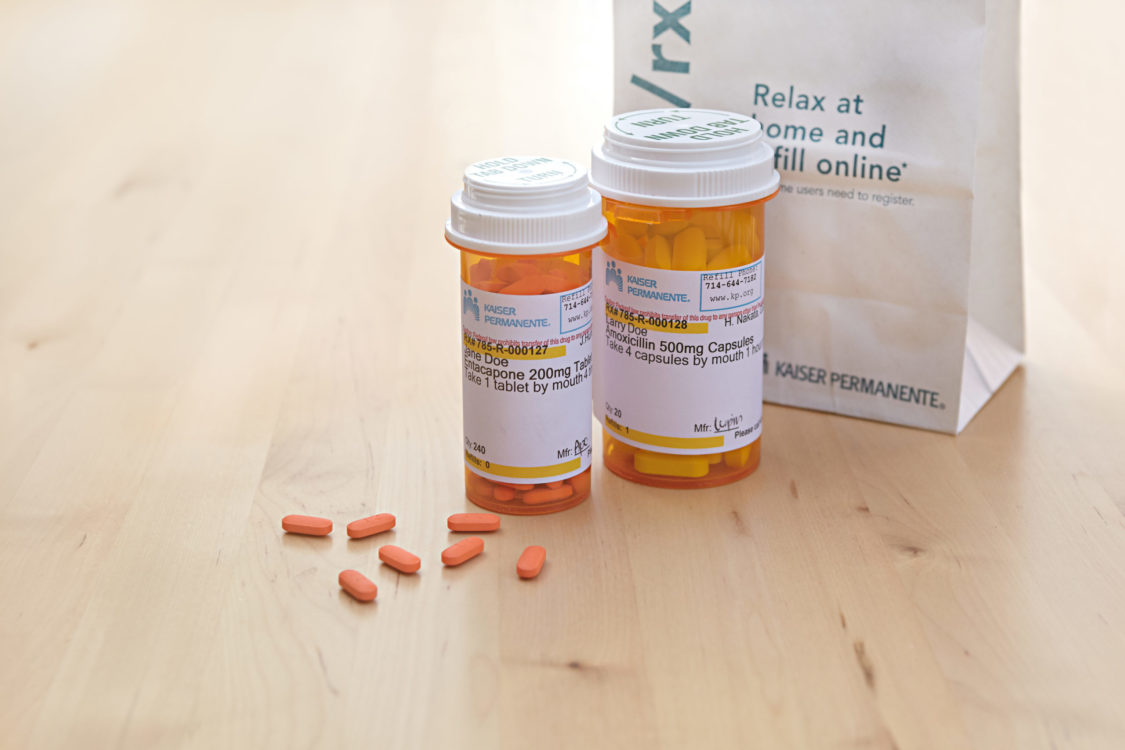New Kaiser Permanente study finds 3-pronged approach using mail, email, and phone calls improved adherence
A targeted outreach campaign to people with type 2 diabetes can encourage them to use mail order pharmacy services and improve their medication adherence, a new Kaiser Permanente study found.
The research was published October 1 in the Journal of General Internal Medicine.

“This study lends evidence to the idea that an outreach program that addresses the specific concerns people with diabetes have about using mail order pharmacy services can be an important part of a strategy to improve their medication adherence,” said the study’s senior author Julie Schmittdiel, PhD, a research scientist at the Kaiser Permanente Northern California Division of Research. “We found only a modest improvement in use, but when you are talking about hundreds of thousands of people with diabetes, it can really add up.”
The study included 63,012 patients with type 2 diabetes at Kaiser Permanente Northern California (KPNC), Kaiser Permanente Hawaii, and Harvard Pilgrim Health Care who were not regularly taking at least one of their diabetes medications and had not used a mail order pharmacy service within the past year. The patients were randomly assigned to a group that received usual care or to an outreach group that received the 3-pronged targeted outreach — a mailed letter, a secure email message, and an automated telephone call — that explained the benefits of using the mail order pharmacy service. (The patients at Harvard Pilgrim received a letter only.)
Over the next year, 10.6% of the patients who received the 3-pronged targeted outreach began using the mail order pharmacy, compared to 9.3% of the control group, a difference that was statistically significant. The group at Harvard Pilgrim that received the letter only did not show any benefit.
Before the study began, the research team held focus groups with Kaiser Permanente patients with diabetes in Northern California and Hawaii to learn why they were not using the mail order pharmacy service. “We found that there were quite a few barriers,” said Schmittdiel, “such as not knowing how the mail order pharmacy worked, not knowing if insulin could be delivered by mail — it can — as well as concerns that their medications might be stolen or not arrive on time.”

Those findings from the focus group study were used to develop the targeted messages used in the phone call, email, and mailed letter the study participants received.
“Getting medications by mail is easy and it helps members stay up-to-date with their prescriptions and on their care plan,” said Rick Dlott, MD, an endocrinologist with The Permanente Medical Group and the medical director of Population Care. “Those are wins in terms of maintaining optimal glucose control and statin adherence, which are incredibly important for people with diabetes.”
In the U.S., diabetes affects more than 34 million people, and it is the 7th leading cause of death. Currently, less than 25% of patients with diabetes use mail order pharmacies for their diabetes medications.
Studies have shown that mail order pharmacies help both patients and health systems save costs. Moreover, recently issued guidelines from the Centers for Disease Control and Prevention recommend patients at high-risk for COVID-19, a group that includes people with diabetes, use mail order pharmacies to help them save on their medications and reduce their risk of exposure to the novel coronavirus.
The new study is part of an ongoing effort by Schmittdiel and other KPNC researchers, pharmacists, and doctors to expand mail order pharmacy use to reduce disparities and improve outcomes. Schmittdiel said this current study will follow the participants for 5 years. “With the COVID-19 pandemic, KPNC has been encouraging use of the mail order pharmacy even more,” said Schmittdiel. “This study was started before the pandemic. But it provides particularly timely evidence that interventions that target this group can be an effective approach.”
This study was funded by the National Institute of Diabetes and Digestive and Kidney Diseases and the Health Delivery Systems Center for Diabetes Translational Research.
Co-authors include Bharathi Ramachandran, MPH, Wendy T. Dyer, MS, Romain S. Neugebauer, PhD, Andrew J. Karter, PhD, and Deanne Wiley, BA, of the Kaiser Permanente Division of Research (DOR); DOR adjunct investigators Cassondra J. Marshall, DrPH, MPH, of the University of California, Berkeley, and Susan D. Brown, PhD, of the University of California, Davis; Connie M. Trinacty, PhD, of Kaiser Permanente Hawaii; Frank Wharam, MD, and Dennis Ross-Degnan, ScD, of Harvard Medical School and Harvard Pilgrim Health Care Institute; and O Kenrik Duru, MD, of the University of California, Los Angeles.
# # #
About the Kaiser Permanente Division of Research
The Kaiser Permanente Division of Research conducts, publishes and disseminates epidemiologic and health services research to improve the health and medical care of Kaiser Permanente members and society at large. It seeks to understand the determinants of illness and well-being, and to improve the quality and cost-effectiveness of health care. Currently, DOR’s 600-plus staff is working on more than 450 epidemiological and health services research projects. For more information, visit divisionofresearch.kaiserpermanente.org or follow us @KPDOR.





This Post Has 0 Comments